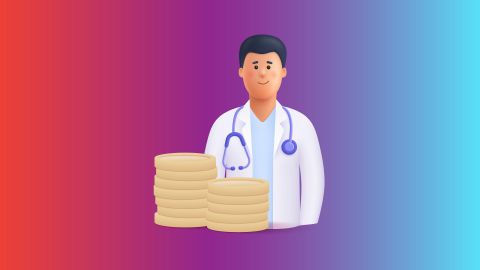Navigating the complex world of healthcare involves more than just doctors and nurses. Behind every well-functioning hospital is a team of skilled administrators who ensure that the entire healthcare facility runs smoothly. You may wonder, what is hospital administration? It is the backbone of any medical institution, encompassing the management of hospital operations, resources, and staff. Whether it is coordinating between departments, handling budgets, or ensuring compliance with health regulations, hospital administrators play a crucial role in delivering quality patient care.
Understanding the hospital administration roles and responsibilities can open the doors to a dynamic career in the healthcare industry. With the right skills and knowledge, one can contribute to the efficiency and success of a hospital, impacting the lives of countless patients. In this article, we will delve into what is administration in hospital settings, the skills needed for success, and the scope of hospital administration as a career.
What is Hospital Administration?
Hospital administration is a specialised field that involves overseeing the management and operations of a hospital or healthcare facility. It is about making sure that all departments work in harmony, from the emergency room to patient billing. The main goal of hospital administration is to ensure the efficient delivery of healthcare services while maintaining the financial health of the institution.
For instance, hospital administrators are responsible for strategic planning, human resources management, and implementing policies that comply with healthcare laws and regulations. They also handle budgeting, resource allocation, and patient care management. Understanding what is hospital administration is essential for anyone aspiring to enter this field, as it encompasses a wide range of tasks that are critical to the smooth operation of a hospital.
Scope of hospital administration
The scope of hospital administration is vast, with opportunities in various sectors within the healthcare industry. Here is a breakdown of the potential career paths:
- Hospital management: Leading the overall operations of a hospital or healthcare facility.
- Departmental administration: Specialising in the management of specific departments such as human resources, finance, or patient care.
- Health policy and planning: Working with government bodies or healthcare organisations to develop policies and strategies that improve public health.
- Consultancy: Providing expert advice to hospitals or healthcare institutions on improving their operations and patient care services.
- Research and development: Contributing to the advancement of healthcare practices through research and innovation.
What is the role of hospital administration?
Hospital administration roles are diverse and can vary depending on the size and type of the healthcare facility. Here is a closer look at some of the primary responsibilities:
- Strategic planning: Developing and implementing long-term strategies to improve hospital efficiency and patient care.
- Human resource management: Recruiting, training, and retaining staff, ensuring that the hospital has the right talent to meet its objectives.
- Compliance and risk management: Ensuring that the hospital adheres to healthcare laws and regulations, and managing risks protecting the institution from legal and financial issues.
- Financial management: Overseeing the hospital's finances, including budgeting, accounting, and resource allocation.
- Patient care coordination: Working with medical staff to ensure that patients receive high-quality care and that their needs are met efficiently.
What does a hospital administrator do?
Hospital administrators are involved in almost every part of a hospital's operations, from hiring staff and managing finances to meeting with doctors and nurses about their schedules and priorities. Their duties include:
- Hiring, training, and managing staff, including organising work schedules
- Making sure the hospital follows laws and regulations
- Preparing budgets and handling patient billing
- Keeping hospital records and data updated
- Working with doctors and other staff to ensure the best patient care
- Representing the hospital in communication with suppliers, stakeholders, regulators, and the public
Best skills for a successful career in hospital administration
To thrive in the field of hospital administration, one must possess a unique blend of skills. Here are some of the most important skills that will help you succeed:
- Leadership and management: As a hospital administrator, you need to lead teams, make critical decisions, and manage various departments effectively.
- Communication: Strong communication skills are vital, as you will need to liaise between different departments, staff, patients, and external stakeholders.
- Problem-solving: Hospitals are fast-paced environments where issues can arise unexpectedly. The ability to think on your feet and solve problems quickly is crucial.
- Financial acumen: Managing budgets and ensuring that the hospital is financially stable is a key responsibility. A good grasp of financial management is essential.
- Attention to detail: Hospital administrators must be meticulous, as overlooking small details can lead to significant issues in healthcare delivery.
How to become a hospital administrator
Becoming a hospital administrator needs the right mix of education, experience, and skills.
Education
Generally, hospital administrators need at least a bachelor's degree in a related area like health administration, nursing or health management. However, many employers prefer candidates with a master’s degree. This degree can help those already experienced in clinical and management settings improve their skills.
Certifications
Besides a bachelor’s or master’s degree, some hospital administrators may go for certification in areas like medical management or health information management. While certifications are not typically required, they can provide specialised knowledge and make candidates stand out. Possible certifications include:
- Certified Medical Manager (CMM)
- Certified Professional in Healthcare Information and Management Systems (CPHIMS)
- Certified Professional in Healthcare Risk Management (CPHRM)
- Certified Healthcare Administrative Professional (cHAP)
- Fellow of the American College of Healthcare Executives (FACHE)
- Nursing Home Administrator (NHA) or Residential Care/Assisted Living Administrator (RC/AL) (one of these is often needed to manage a nursing home)
Experience
Future hospital administrators usually have previous clinical or administrative experience in a healthcare setting. They may start as registered nurses, health information technicians or administrative assistants before becoming health managers.
Skills
Hospital administrators work with various colleagues and clients, including doctors, nurses, lab technicians, patients, and insurance providers. They need both people skills and technical skills, including:
- Communication: Hospital administrators deal with a wide range of people, from doctors and nurses to patients and their families. They may also represent the hospital to the public in press conferences and community outreach
- Leadership: To manage their teams well, hospital administrators need to motivate staff, solve problems and sort out conflicts
- Organisation: Good organisational skills help hospital administrators handle the many tasks they do each day
- Technical skills: Hospital administrators should understand the technical aspects of healthcare and keep up with technologies like electronic health record systems
Advice for building a successful career in hospital administration
To build a successful career in hospital administration, a solid educational foundation is crucial. A degree in healthcare management, hospital administration, or a related field provides the essential skills required for the role. Key skills include leadership, communication, and problem-solving, as administrators must coordinate teams, handle conflicts, and make decisions under pressure. Gaining experience in healthcare settings, from smaller clinics to larger hospitals, allows aspiring administrators to understand the complexities of hospital operations. Continuous learning through certifications, workshops, and staying updated on industry trends is also vital for career advancement. Additionally, adaptability to new technologies and regulatory changes is important to stay relevant. Over time, a good reputation, strong professional relationships, and a proven track record in managing hospital operations can lead to higher-level positions in hospital management. Effective administrators are those who balance operational efficiency, patient care quality, and financial management, ensuring a smooth-running healthcare facility.
Difference between hospital administration and general administration
Hospital administration and general administration share similarities, but the responsibilities and expertise required in each field differ significantly. Here's a comparison:
- Focus on industry: Hospital administration focuses on managing healthcare facilities, while general administration can apply to any sector, including business, education, or government.
- Regulatory compliance: Hospital administrators must navigate strict healthcare regulations, patient safety protocols, and accreditation standards, whereas general administrators typically work within less complex regulatory environments.
- Operational scope: Hospital administrators coordinate medical, nursing, and support services, ensuring patient care and safety, while general administrators handle broader organisational functions like HR, finance, and operations.
- Expertise requirements: Hospital administrators need specialised knowledge in healthcare finance, patient information systems, and medical ethics, whereas general administrators may have a wider range of skills but no specific healthcare focus.
- Challenges: Hospital administration involves life-critical decisions and managing healthcare emergencies, making it more complex and demanding than general administration roles.
These differences highlight the specialised nature of hospital administration compared to general administration.
Difference between hospital management and hospital administration
The terms hospital management and hospital administration are often used interchangeably, but they cover different areas within the healthcare sector. Here is a simple breakdown of the main differences between hospital management and hospital administration:
Aspect |
Hospital management |
Hospital administration |
Scope and focus |
Concentrates on the hospital's effective operation, long-term planning, and overall strategy |
Mainly focuses on the day-to-day operations of running a hospital |
Responsibilities |
Sets goals, creates strategic plans, and manages various departments |
Oversees tasks such as compliance, finance, and managing staff |
Strategic vs. operational |
Focuses on long-term planning and strategic decisions |
Handles daily operational issues to ensure smooth running |
Leadership roles |
Typically includes roles like CEO, COO, or CFO |
May include roles like administrative directors or department managers in charge of specific tasks |
Conclusion
In conclusion, what is hospital administration involves a wide range of responsibilities, from strategic planning to patient care coordination. This field is vital to the effective functioning of any healthcare facility, and with the right skills, one can make a significant impact. If you are a medical professional looking to advance your career, consider exploring the opportunities that hospital administration offers. Moreover, if you require financial support to pursue further studies or start your career in hospital administration, Bajaj Finance offers an attractive Doctor Loan that can help you achieve your goals.




